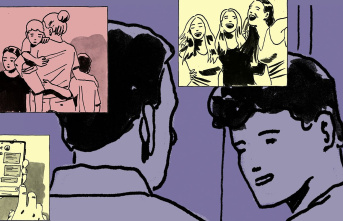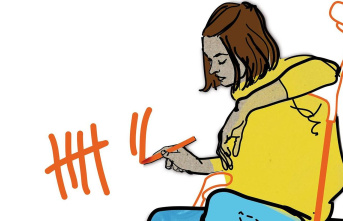It could be a historic day for supporters of Scottish independence. They are eagerly awaiting a decision from the British Supreme Court today.
It's about whether the regional parliament in Edinburgh can decide on a referendum on the detachment from London - even if the British government is against it. According to observers, while it cannot be ruled out that the court will rule in favor of the nationalists, it is unlikely. Nevertheless, the political scientist Kirsty Hughes sees a clever move by the Scottish Prime Minister Nicola Sturgeon in bringing the case to the Supreme Court.
No voluntary union?
Because now the British government is under pressure. No matter what the court decides, Hughes sees pro-independence as the winners. Should the Supreme Court surprisingly affirm the right of the Scottish Parliament, the nationalists have already taken a decisive step forward. Sturgeon has announced a referendum for October 2023 in this case. If the opponents of independence boycott this vote, they would act undemocratically, Hughes told the German Press Agency. The same applies if the British government tries to legislate the referendum illegal.
If the court rejects the request, the nationalists could argue that the United Kingdom - contrary to what the British government has always emphasized - is not a voluntary union. Prime Minister Sturgeon has stressed that she will accept a no, but will then conduct the next British general election as a quasi-referendum. It's risky but clever, Hughes said. Because if a majority of Scots actually votes for parties that stand up for independence, this means a political signal. The pressure on London is increasing.
Final decision unlikely
According to experts, it is most likely that the Supreme Court will not make a final decision. Scotland's Attorney General Dorothy Bain, who made the application on behalf of the regional government, has asked the court for a ruling in a hypothetical case, constitutional lawyer Adam Tomkins said. "Not only has the bill not passed, it has not even been formally introduced to the Scottish Parliament," Tomkins told the PA news agency. The Supreme Court could therefore declare that there is nothing to decide.
If there is no verdict, it is possible that the Scottish government, with the votes of Sturgeon's Scottish National Party (SNP) and the Greens, will push a referendum bill through parliament - and wait and see whether the British government then appeals to the Supreme Court. But political scientist Hughes also sees this as an advantage for the nationalists. Because if the British government were to act against a referendum decided by a democratically elected parliament, it would be a further sign that London does not take the will of the Scots seriously, said Hughes.
Brexit changed starting position
In a first referendum in 2014, a majority of Scots voted to remain in the union with Great Britain. For London, the question is thus decided in the long term. But Prime Minister Sturgeon argues that Brexit, which the Scots clearly rejected in 2016, has changed the situation. She wants to lead an independent Scotland back into the EU. In Parliament in Edinburgh, pro-independence is in the majority.
Notwithstanding the London decision, the Independence Camp has called for demonstrations in several Scottish cities in the afternoon. There are also said to be smaller gatherings in five EU cities, including Munich. "As important as the Supreme Court ruling is the fact that people around the world will see that Scots are visible, active and vocal in supporting another referendum to decide their future," said co-organizer Lesley Riddoch.












